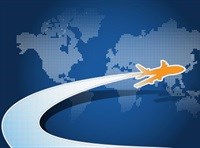Top tips for business travel in Tanzania

However a trip to Dar Es Salam has its challenges and Amora Nyawo, a Club Travel Executive Director who facilitates travel on behalf of company executives to countries all over the world, has some handy tips having recently spent time in Tanzania's bustling capital as well as the neighbouring spice island of Zanzibar.
At the airport: There are numerous security checks so keep this in mind if you have limited time and make sure you have a yellow fever certificate.
Transport: The roads are generally decent, bar a few potholes, so getting to your hotel won't be arduous.
Sleep: The Hyatt Regency Dar Es Salaam and The Kilimanjaro are two upmarket options in the capital, while The Residence Hotel in Zanzibar is set on a stretch of white sand beach. More accessible options in the capital are the Holiday Inn, located in the business district just a five-minute drive from banks, embassies and shops, and the Protea Courtyard just 12km from the airport.
Staying connected: The network in the capital's reputable hotels is generally fine and Wi-Fi is usually free in the lobby; however in Zanzibar it can be a challenge and you may have to go into the lobby of the four- and five-star hotels to get a decent connection. Alternatively, get a local SIMcard with your passport at the airport or hotel, as this is the most convenient and economical calling solution.
Eat: The average cost per meal in a hotel is R250, excluding drinks. More adventurous diners should try local cuisine, which has been influenced by a number of cultures with a fusion of flavours, courtesy of Indian, Middle Eastern and local African ingredients and cooking techniques.
Drink: Bottled water ranges from R10 to R30. Sodas, beer, wine and spirits can come in under R50 per glass. Local beers include Kilimanjaro, Safari and Serengeti, while sugar cane water is a local treat.
Money: Currencies used in Tanzania are Tanzanian shillings, US dollars, euros, and South African rands are also welcomed in the local market. It is better to use crisp new bills, as many shops, hotels and banks will not accept older bills, due to counterfeiting.
Language: There are many languages and dialects, with Swahili the most common. English is widely spoken, but it is always good to know the basic greeting in Swahili "Jambo" and thank you "Asante sana". Arabic is mainly spoken in Zanzibar.
Sightseeing, hangouts and activities: If your trip is not all work, must-sees include the Kariakoo Market for bargain hunting and an authentic shopping experience. Coco Beach on the Msasani Peninsula has plentiful street food and sometimes live music over the weekend. Foodies visiting Zanzibar should explore the evening market at Forodhani Gardens for the grilled fish or visit Stone Town, which is home to historical sites including the House of Wonders and the Kidichi Persian Baths.
Safety: You generally don't face any more dangers traveling in African countries, but pay close attention to your personal security and monitor the media for new security risks. Place copies of your passport, airline ticket, credit card and traveller cheque numbers in your main luggage, so if you misplace the originals you will have the information for insurance and replacement purposes.
What to pack: Sunscreen, a hat, basic emergency medical aid kit, light cotton clothing, comfortable walking shoes, sandals, rain jacket, insect repellant, sunglasses, and a camera.

























